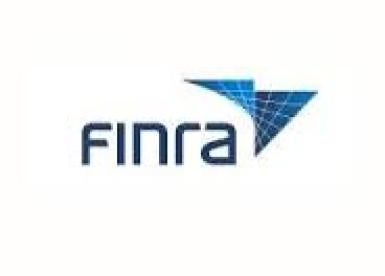As part of its ongoing market structure initiatives related to, among other things, automated trading activities, the Financial Industry Regulatory Authority (FINRA) has issued a proposal that would require the registration of associated persons of FINRA-member firms who are "primarily responsible for the design, development or significant modification of an algorithmic trading strategy." The proposal's scope is broad, and would require various individuals who currently are not subject to a FINRA registration requirement, to pass a qualification examination and register.
Purpose of the Proposed Rule
FINRA's market structure-related initiatives are aimed at addressing the explosion of automated trading activities—i.e., high-speed and algorithmic trading—in the nation's securities markets by increasing the scope of trading information provided to FINRA, increasing the transparency of such trading activities and requiring employees of member firms engaged in electronic trading to be "trained, educated and accountable" for their role in algorithmic trading strategies.
The latest proposal, published in FINRA Regulatory Notice 15-06, is meant to ensure that those individuals responsible for member firms' automated trading activities have sufficient knowledge of the law and regulations applicable to those trading activities. FINRA has indicated that it is aware of instances in which algorithmic trading activities have arguably violated Regulation NMS, Regulation SHO, Rule 15c3-5, wash sale prohibitions, and various other legal and regulatory requirements. FINRA points out that an individual equity trader performing the trading in question typically would be required by FINRA Rule 1032(f) to register as an Equity Trader, and believes that individuals responsible for such trading when accomplished via algorithm should be subject to the same requirement. By requiring certain individuals responsible for such algorithmic trading to pass a qualification examination (and, like all registered individuals, subsequently to take part in continuing education) concerning basic securities regulation obligations, FINRA hopes to facilitate compliance with such regulatory obligations by firms engaged in automated trading activities. Ultimately, "the goal of the registration proposal is to require firms to identify and register one or more key persons who possess knowledge of and responsibility for both the design of the intended trading strategy and the technological implementation (e.g., coding) of that strategy, sufficient to evaluate whether the resultant product is designed not only to achieve business objectives, but also regulatory compliance." Of course, the proposal when implemented also will provide FINRA with enforcement and disciplinary authority over those registered individuals who are involved in the creation or modification of an algorithmic trading strategy that is deemed to be non-compliant with applicable legal and regulatory obligations.
Who Would Be Obligated To Register?
The FINRA proposal would modify FINRA Rule 1032(f) to require an associated person of a FINRA-member to register as a Limited Representative – Equity Trader if the person is:
-
primarily responsible for the design, development or significant modification of an algorithmic trading strategy that generates and routes (or sends for routing) orders and order-related messages relating to equity, preferred or convertible debt securities either to an exchange or over the counter; or
-
responsible for supervising or directing such activities.
In its Regulatory Notice, FINRA provided insight concerning the contemplated meaning and scope of the proposal, as follows below.
-
An individual on the business side who is primarily responsible for the design of the strategy (i.e., for defining the business requirements of the strategy to be employed by the algorithm) would be obligated to register, as would the individual on the development side who is primarily responsible for the process of developing (i.e., coding) the algorithm to implement the strategy (such individual's supervisor also would be obligated to register if he/she is involved in the day-to-day supervision or direction of the development process).
-
Because only those individuals who are primarily responsible for the design, development or significant modification of an algorithmic trading strategy would be obligated to register, junior developers and others who solely write code to implement design or modification instructions at the direction of someone else would not be required to register.
-
For purposes of the proposal, an algorithmic trading strategy is a program that generates and routes (or sends for routing) orders and order-related messages (such as cancellations) in securities on an automated basis (i.e., without material intervention by a person) either to an exchange or over-the-counter. Examples given by FINRA of automated trading programs that would be covered by this definition include:
-
arbitrage strategies, such as index or exchange-traded fund (ETF) arbitrage;
-
strategies that involve simultaneously trading two or more correlated securities due to the divergence in their prices or other trading attributes;
-
order generation, routing and execution programs used for large-sized orders that involve dividing the order into smaller-sized orders less likely to result in market impact;
-
order routing strategies used to determine the price, size and destination for routed orders, the use of "parent" and "child" orders, and displayed versus non-displayed trading interest;
-
trading strategies that become more or less aggressive to correlate with trading volume in specified securities;
-
trading strategies that minimize intra-day slippage in connection with achieving volume-weighted average prices and time-weighted average prices;
-
strategies that create or liquidate baskets of securities, including those that track indexes or ETFs; and
-
trading strategies that generate orders for alternative trading systems (ATSs) or other internal order matching engines.
-
-
Neither an order router standing alone (e.g., one that routes retail orders designed solely to comply with best execution and Regulation NMS requirements) nor an algorithm that generates investment ideas or investment allocations but does not generate orders or order-related messages, would constitute an algorithmic trading strategy as completed by the proposal.
-
To the extent that a member firm were to hire a third party to develop an algorithmic trading strategy for it, the firm's associated person directing the third party with respect to the design and development of the algorithmic trading strategy would be required to register pursuant to the proposal.
Written Supervisory Procedures
The proposal would necessitate adoption by FINRA-member firms that utilize algorithmic trading strategies, of policies and procedures designed to achieve compliance with the proposed requirements. For example, member firms might consider adding to their systems development process:
-
a requirement that the Firm make an assessment of whether the system in question constitutes an algorithmic trading strategy;
-
a requirement that the Firm designate, for each new or modified algorithmic trading strategy, each individual who will be primarily responsible for the design of the system or modification and each individual who will be primarily responsible for the development of the system or modification; and
-
confirmation that each such individual is (or timely becomes) registered with FINRA as required by the proposal.
Impact On Non-FINRA Members
Although the proposal applies only to FINRA-member firms (and not, for example, to proprietary trading firms that are not FINRA members), the Securities and Exchange Commission (SEC) has proposed amendments to Rule 15b9-1 under the Securities Exchange Act of 1934 that would eliminate the proprietary exemption under Rule 15b9-1 and thereby require many proprietary broker-dealers that currently are not FINRA members, to become FINRA members. Coupled with the FINRA registration proposal, individuals at such firms who are primarily responsible for the design and development of algorithmic trading strategies would be required to register with FINRA as well.
FINRA's Request for Comment to the Proposal
FINRA requested that interested parties submit comment on all aspects of the proposed registration requirement and specified various issues about which it hopes to receive comment, including:
-
the estimated number of member firms that would be affected by the proposal and the estimated number of associated persons currently not required to register that would be covered by the proposal;
-
estimated costs associated with monitoring for compliance with the proposed requirements;
-
whether other activities/roles besides, or instead of, primary responsibility for designing, developing or significantly modifying an algorithmic trading strategy (or supervising someone engaged in the foregoing), should trigger a registration obligation;
-
the appropriateness of the contemplated scope and definition of "algorithmic trading strategy" as described above; and
-
whether the proposed registration requirement would discourage persons from associating with a member firm and if so what steps might be taken to mitigate such impact.
Comments must be received by FINRA by May 18, 2015, and may be submitted via email to pubcom@finra.org or by hard copy via mail. Before becoming effective, the proposed rule change must be filed with the SEC.




 />i
/>i
